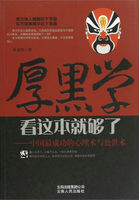Suppose, for instance, we were engaged in a war, in conjunction with one foreign nation, against another. Suppose the necessity of our situation demanded peace, and the interest or ambition of our ally led him to seek the prosecution of the war, with views that might justify us in making separate terms. In such a state of things, this ally of ours would evidently find it much easier, by his bribes and intrigues, to tie up the hands of government from making peace, where two thirds of all the votes were requisite to that object, than where a simple majority would suffice. In the first case, he would have to corrupt a smaller number; in the last, a greater number. Upon the same principle, it would be much easier for a foreign power with which we were at war to perplex our councils and embarrass our exertions. And, in a commercial view, we may be subjected to similar inconveniences. A nation, with which we might have a treaty of commerce, could with much greater facility prevent our forming a connection with her competitor in trade, though such a connection should be ever so beneficial to ourselves.
Evils of this description ought not to be regarded as imaginary. One of the weak sides of republics, among their numerous advantages, is that they afford too easy an inlet to foreign corruption. An hereditary monarch, though often disposed to sacrifice his subjects to his ambition, has so great a personal interest in the government and in the external glory of the nation, that it is not easy for a foreign power to give him an equivalent for what he would sacrifice by treachery to the state. The world has accordingly been witness to few examples of this species of royal prostitution, though there have been abundant specimens of every other kind.
In republics, persons elevated from the mass of the community, by the suffrages of their fellow-citizens, to stations of great pre-eminence and power, may find compensations for betraying their trust, which, to any but minds animated and guided by superior virtue, may appear to exceed the proportion of interest they have in the common stock, and to overbalance the obligations of duty. Hence it is that history furnishes us with so many mortifying examples of the prevalency of foreign corruption in republican governments. How much this contributed to the ruin of the ancient commonwealths has been already delineated. It is well known that the deputies of the United Provinces have, in various instances, been purchased by the emissaries of the neighboring kingdoms.
The Earl of Chesterfield (if my memory serves me right), in a letter to his court, intimates that his success in an important negotiation must depend on his obtaining a major's commission for one of those deputies.
And in Sweden the parties were alternately bought by France and England in so barefaced and notorious a manner that it excited universal disgust in the nation, and was a principal cause that the most limited monarch in Europe, in a single day, without tumult, violence, or opposition, became one of the most absolute and uncontrolled.
A circumstance which crowns the defects of the Confederation remains yet to be mentioned, the want of a judiciary power. Laws are a dead letter without courts to expound and define their true meaning and operation.
The treaties of the United States, to have any force at all, must be considered as part of the law of the land. Their true import, as far as respects individuals, must, like all other laws, be ascertained by judicial determinations. To produce uniformity in these determinations, they ought to be submitted, in the last resort, to one SUPREME TRIBUNAL.
And this tribunal ought to be instituted under the same authority which forms the treaties themselves. These ingredients are both indispensable.
If there is in each State a court of final jurisdiction, there may be as many different final determinations on the same point as there are courts. There are endless diversities in the opinions of men. We often see not only different courts but the judges of the came court differing from each other. To avoid the confusion which would unavoidably result from the contradictory decisions of a number of independent judicatories, all nations have found it necessary to establish one court paramount to the rest, possessing a general superintendence, and authorized to settle and declare in the last resort a uniform rule of civil justice.















